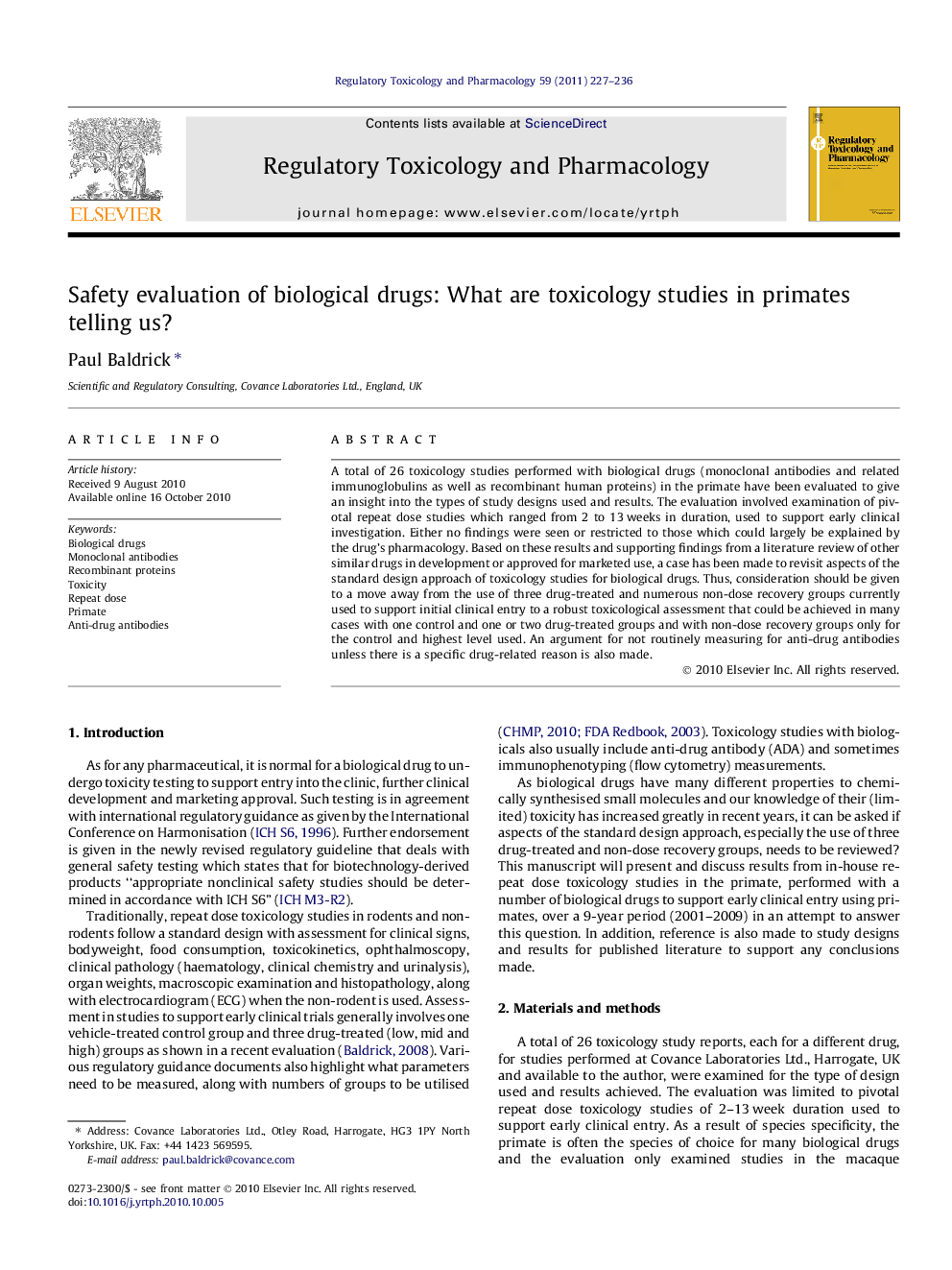| Article ID | Journal | Published Year | Pages | File Type |
|---|---|---|---|---|
| 5857723 | Regulatory Toxicology and Pharmacology | 2011 | 10 Pages |
Abstract
A total of 26 toxicology studies performed with biological drugs (monoclonal antibodies and related immunoglobulins as well as recombinant human proteins) in the primate have been evaluated to give an insight into the types of study designs used and results. The evaluation involved examination of pivotal repeat dose studies which ranged from 2 to 13Â weeks in duration, used to support early clinical investigation. Either no findings were seen or restricted to those which could largely be explained by the drug's pharmacology. Based on these results and supporting findings from a literature review of other similar drugs in development or approved for marketed use, a case has been made to revisit aspects of the standard design approach of toxicology studies for biological drugs. Thus, consideration should be given to a move away from the use of three drug-treated and numerous non-dose recovery groups currently used to support initial clinical entry to a robust toxicological assessment that could be achieved in many cases with one control and one or two drug-treated groups and with non-dose recovery groups only for the control and highest level used. An argument for not routinely measuring for anti-drug antibodies unless there is a specific drug-related reason is also made.
Keywords
Related Topics
Life Sciences
Environmental Science
Health, Toxicology and Mutagenesis
Authors
Paul Baldrick,
